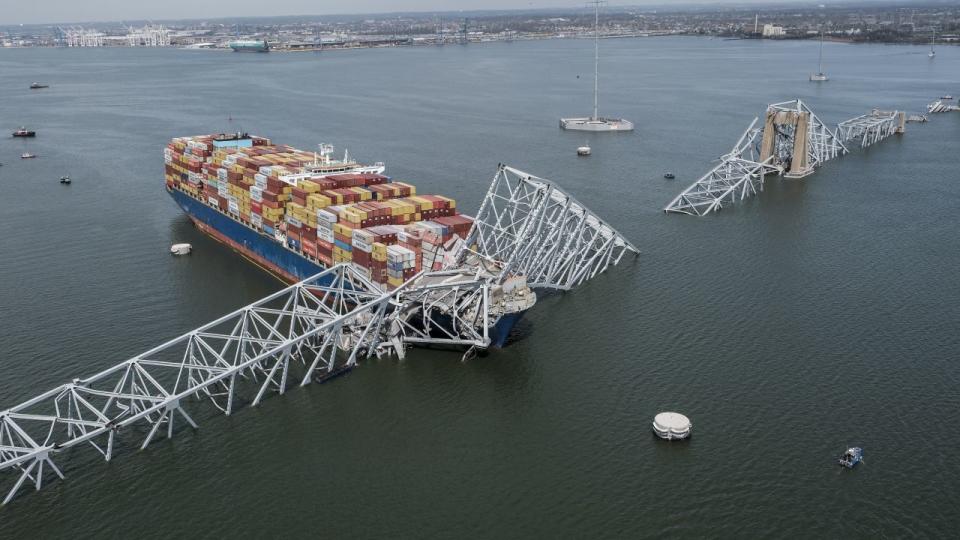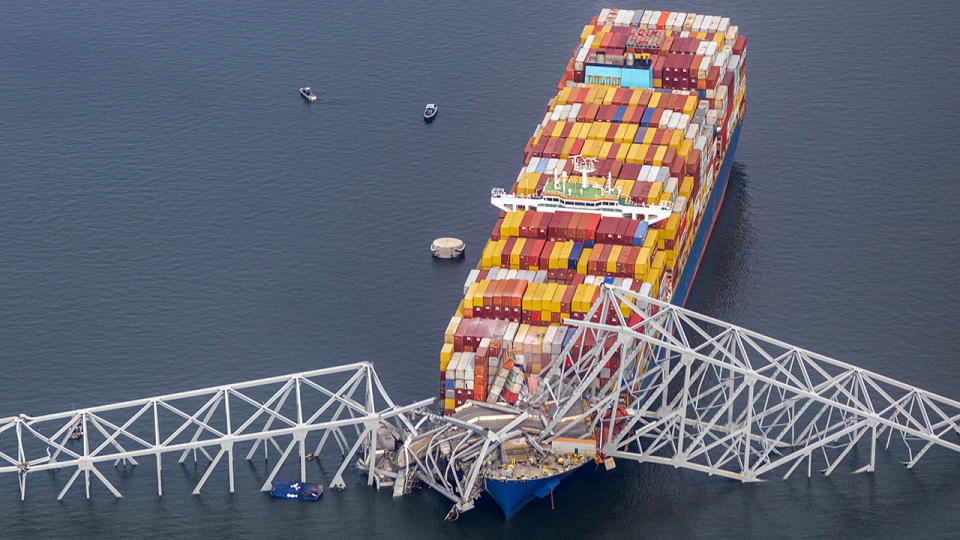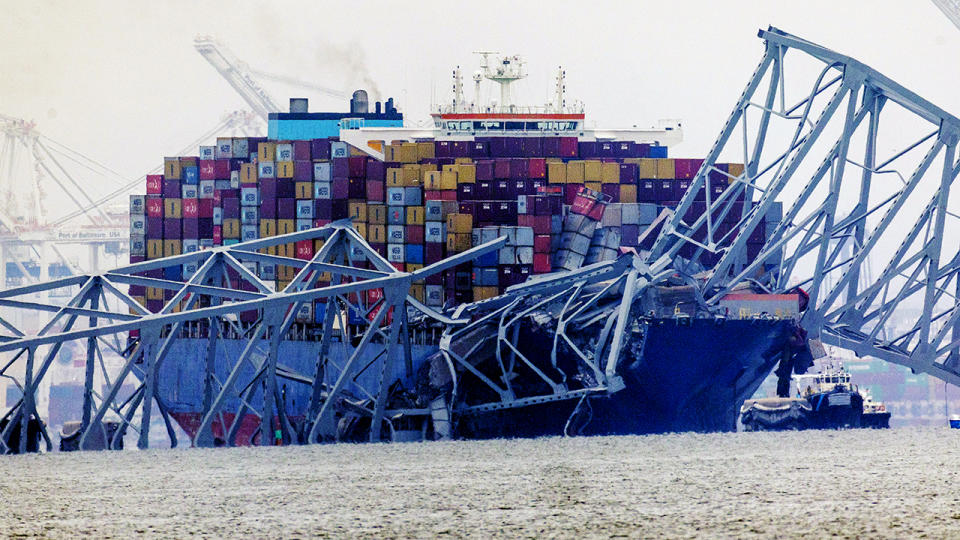Baltimore port closure may hit US coal export volumes
The closure of the Port of Baltimore to shipping traffic following a container ship's collision with a bridge that collapsed into the harbor will slow U.S. exports of coal, according to a report by the Energy Information Administration (EIA) published Thursday.
The Port of Baltimore is the second-largest U.S. shipping hub for coal exports, which have been disrupted following the collapse of the city's Francis Scott Key Bridge early Tuesday morning. The massive container ship Dali lost power as it was transiting the channel under the bridge and struck one of its support pilings, which resulted in the bridge's collapse.
In the wake of the accident, the Port of Baltimore has been closed indefinitely, with it unclear when the channel will be cleared, as the vessel and bridge debris remain in the channel at this time. Estimates offered by experts on a timeline for the channel to be cleared and the port reopened range from weeks to months.
"An attractive feature of the Port of Baltimore is its proximity to the northern Appalachia coal fields in western Pennsylvania and northern West Virginia," the EIA wrote in its report."Other nearby ports, most notably Hampton Roads, have additional capacity to export coal, although factors including coal quality, pricing, and scheduling will affect how easily companies can switch to exporting from another port."
BALTIMORE BRIDGE COLLAPSE SHUTTERS PORT INDEFINITELY, IMPACTING SUPPLY CHAIN

Census Bureau data highlighted in the EIA report showed that the Port of Baltimore's share of U.S. coal exports rose from between 20% and 25% from 2019 to 2022 to 28% last year. The EIA attributed that increase to growing demand for U.S. coal in Asia — though it noted that it expected growth in coal exports to slow to just 1% in 2024.
Coal exported from the Port of Baltimore has primarily been steam coal, which is mostly used to generate electrical power and for industrial heating. Steam coal accounted for 19 million short tons of coal exports from the port last year after averaging about 12 million short tons in the prior four years.
ECONOMIC IMPACT FROM BALTIMORE BRIDGE COLLAPSE WILL BE LONG-LASTING, TRADE GROUP WARNS

Metallurgical coal, which is used as a raw material in steel production, has represented a significant share of exports from the Port of Baltimore — ranging from 6 million short tons to 10 million short tons from 2019 to 2023.
Most of the steam coal shipped from Baltimore goes to India, which uses the coal in its brick manufacturing industry. A portion of the coal goes to ports in the Netherlands that service several European countries, while smaller amounts go to the Dominican Republic, Canada and Egypt.
Metallurgical coal exports from Baltimore primarily go to Asian countries, with Japan receiving 28% last year, followed by South Korea and Japan.
BALTIMORE BRIDGE COLLAPSE SPOTLIGHTS PAST DISASTERS CAUSED BY SHIPS

The EIA noted that the Port of Baltimore only handled a limited amount of imported petroleum products, with biodiesel feedstock and other edible oils the largest, followed by fertilizers and asphalt. It also imports the most urea ammonium nitrate, a common liquid fertilizer, of all ports on the Atlantic Coast.
Other ports that can handle asphalt are Providence, Rhode Island; New York City; and Wilmington, North Carolina, while urea ammonium nitrate can go to Norfolk, Virginia, and Wilmington, according to the EIA.
The closure of the port is also expected to decrease consumption of bunker fuel, which is commonly used to power ships.
"Since the port is a major transit point for freight and bulk vessels, we expect bunker fuel consumption to decrease," the EIA said.
Original article source: Baltimore port closure may hit US coal export volumes
